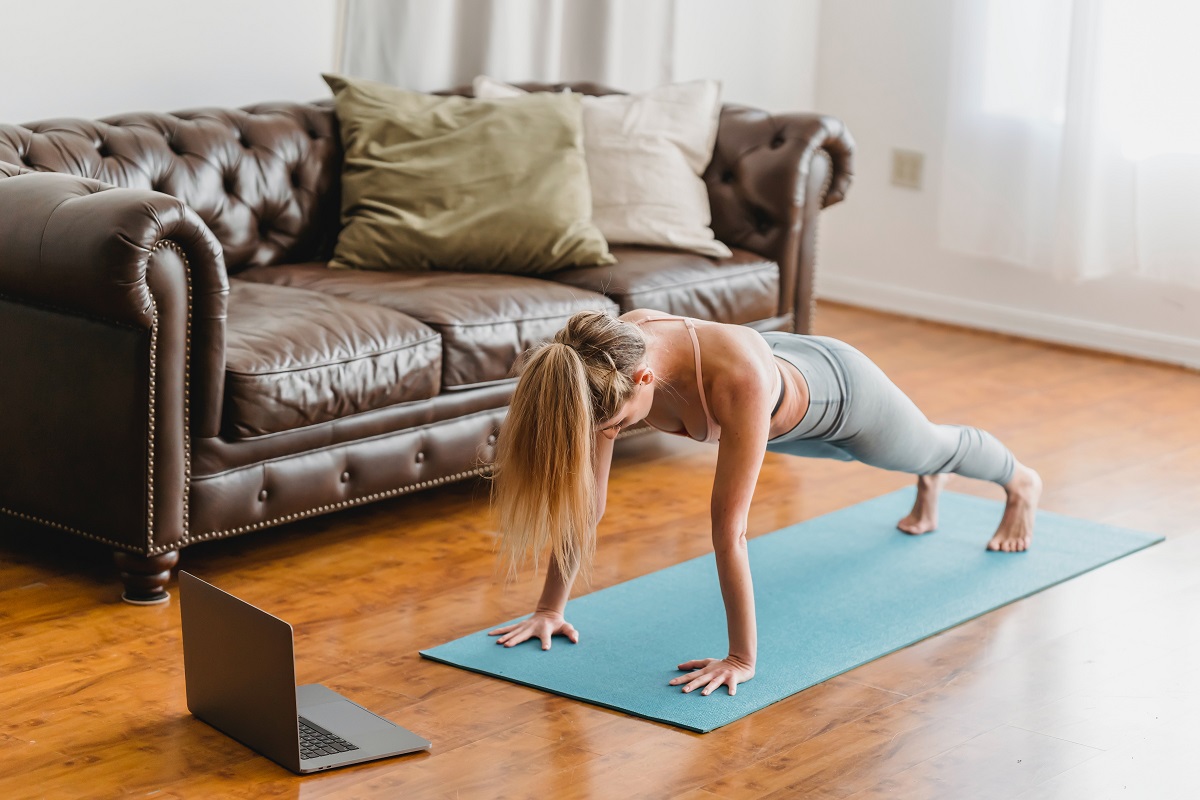It has been proved from recent studies that gut health can influence most body functions in various aspects including immune systems to hormones and as well as triggering allergies to inflammations (1). Does exercise do well for gut health? Yes of course. It is commonly misperceived by the majority of you that the food you intake is the only thing affecting your gut health. This is wrong. Exercise has a lot more to do in addition to what you eat. In this article, let’s discuss what are the best 13 exercises to improve your gut health are.
At first, let’s see how exercise affects your guts.
Does exercises improve gut health?
Undoubtedly, a nutritious diet and a physically active lifestyle go hand to hand. By doing exercises, it keeps you moving. The moving body subsequently contracts guts facilitating the passage of waste matters. Since a vast majority of your immune system is in the guts, exercises will keep you away from diseases (2).
Do exercises change your gut microbiome? By engaging in regular exercise daily will improve beneficial microflora in the guts. In addition, can lack of exercise cause digestive problems? Yes of course, because doing exercises will aid in digestion also. Moreover, the top fact is that due to exercises you will cut down your gut fat too. It is recommended to engage in moderate physical activity around 150-300 minutes a week (3). Accordingly, for optimum gut health engage in following exercises along with a nutritious diet as well.
At first, let’s have a look into Best Exercises for a leaky gut.
Best Exercises for leaky gut
Research studies have found that those who are with higher cardiovascular performance have an elevated count of Firmicutes in their guts who are responsible for preventing the leaky gut syndrome. Accordingly engaging in a cardio workout will help to keep you away from a leaky gut (4).
Does walking help gut health? Yes of course. Especially brisk walking which is a cardio workout too. In addition, Physical movements such as running, jogging, dancing and swimming, etc. including walking will increase your bowel movements facilitating pooping.
01. Brisk walking

Walking is the simplest thing you can try. Brisk walking is a moderate-intensity aerobic activity (4). Being a Cardiovascular exercise boosts Fermicutes too. Never forget to offer at least 30 minutes in your busy routine for brisk walking in the mornings or evenings. This will reduce the risk of colon cancer and facilitate the passage of stools through the colon by stimulating bowel contraction.
In addition, walking after eating helps digestion by fastening the speed of movement of food from the stomach to the small intestine and thus increasing satiety (5). As a rule of thumb, the maximum rate you can move is 4.5 mph. If you are weighing around 69 kg, you will burn 480 calories at a 4.5 mph rate and 260 calories at 3.5mph (4). Why you shouldn’t walk after eating? Note: For some people walking after eating have some side effects too. You may feel like an upset tummy with gas, bloating, diarrhea, indigestion and nausea (6). Follow the steps below.
- Start slowly to warm up.
- Keep the shoulders relax.
- Maintain a straight back.
- Pace forward from heel.
- Gradually include hills into your routes.
- Warm down slowly.
Second, let’s have a look at core exercises.
Best core exercises for gut health & and digestion
Includes sit-ups, abdominal crunches and planks. As they are deep and stronger exercises you should get the help of a personal trainer to do them correctly especially to avoid unnecessary injuries.
02. Crunches
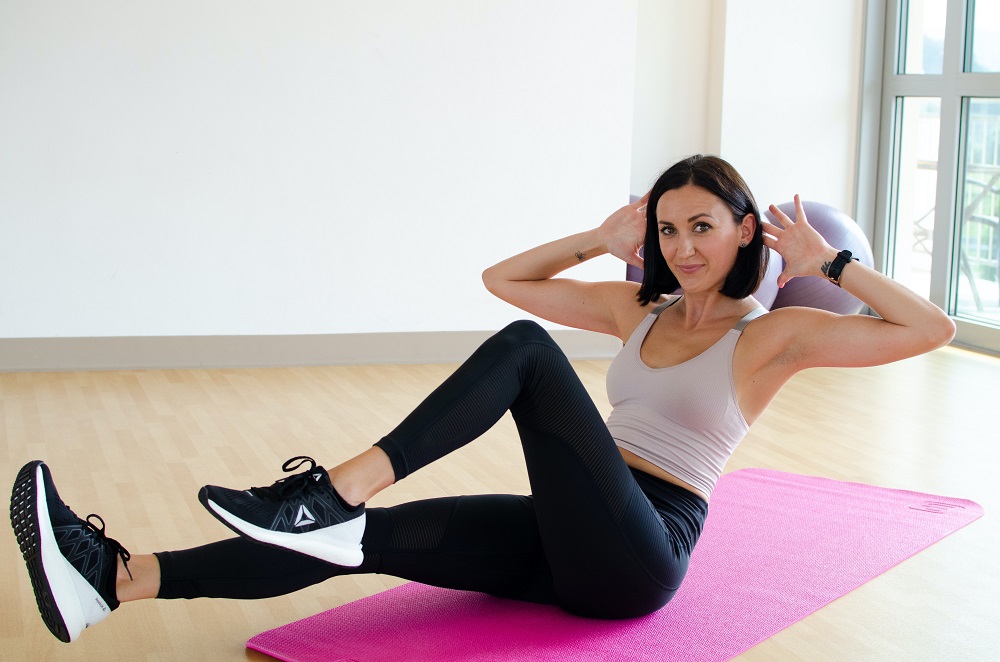
One of the most popular classic core exercises for the belly, primarily targeting rectus and oblique muscles. It is considered to be one of the best exercises for healthy digestion too. You can do a basic crunch as follows (7). In addition, you could try bicycle crunch also.
- Starting position – Lie down on the floor. Keep your feet hip-width apart. Place your arms crossed on your chest. Contract abs and take a breath.
- Blow out. Lift only the upper body keeping your head and neck relaxed.
- Take a breath and go back to the starting position.
Note: Start slowly. The Head and neck should be relaxed. Otherwise, they may cause injury. Take care only to raise the upper body. Unless you are mastered you should keep hands across the chest. Otherwise, it may strain your neck. Try on your hands placed behind the head whenever you are an expert. Skip crunches as they are potentially unsafe for your golden-agers.
In addition, Twist crunch, Kick crunch and Hollow body hold are three movements you can do to strengthen your abs. Crunches will benefit you by (8) (9) strengthening bowel movements, avoiding gas and bloating, and also aiding in reducing inflammations by cutting off belly fat.
03. Safer alternatives to crunches
As basic crunches show some potential strains and injuries, you can try following safer alternatives as well. You’ll find them rather easier than a basic crunch or a bicycle crunch as they pose minimum strains and injuries if you engage accurately. Try some from the list below.
04. Yoga for gut health
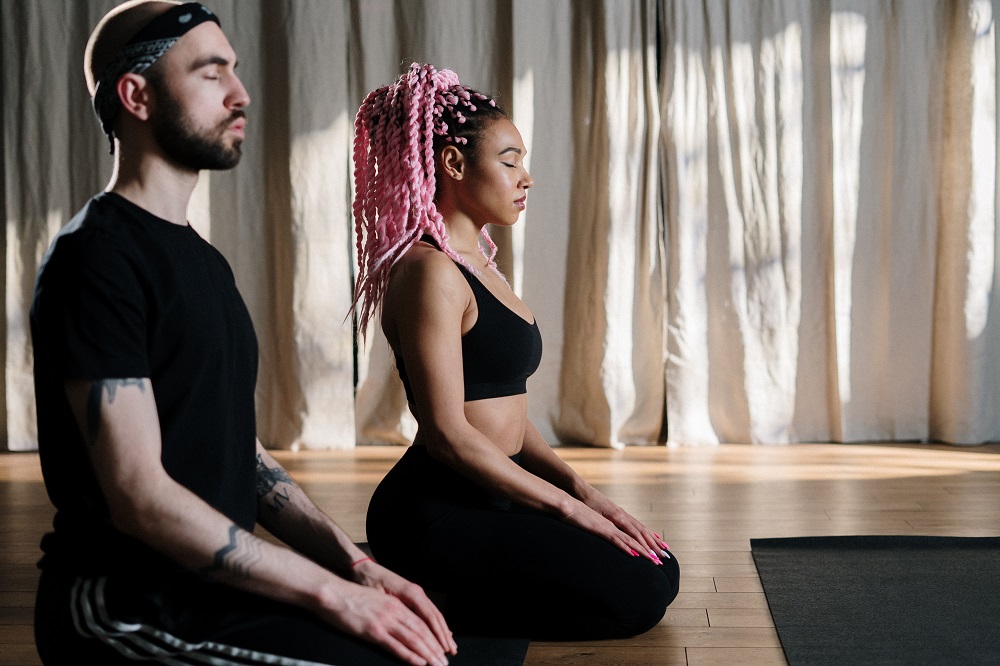
As you all know, Yoga is a conventional type of exercise that focuses on both body and mentality (10). Note: It is generally recognized yoga as safe. However, if you are experiencing pregnancy, high blood pressure and back or neck injuries it is better to avoid Yoga (11). You can try the following Yoga poses to help improve your gut health by staying off from bloating and improving digestion as well (11).
- Easy Yoga stretches for digestion: Seated twist, Supine spinal twist, Seated forward bend, Seated side bend, Head to knee posture, Bellows pose
- Bedtime Yoga for digestion: Gentle yoga with low-intensity twist poses
- Gentle Yoga poses for digestion after a big meal: Seated Cat-Cow, Garland pose, Leg-binding pose, Wind relieving pose, Reclined Cobler’s pose (12) What happens if we do Yoga after eating? It will help you with improved digestion especially on occasions where you are over-eaten.
- Yoga for relieving constipation: Half Spinal twist, Supine Spinal twist, Cobra pose, Crescent Lunge twist, Wind relieving pose, Bow pose, Adamant pose, Legs up the wall pose (13)
- You can do an all-level practice focusing on ‘Asana’ which will help you to detoxify your guts as well (14)
It is normally recommended to do Yoga early in the morning with an empty stomach. However, with the busy schedule, you are facing at present you may hardly find time to do so. If you can’t engage in the morning, then it will be best in the evening before dinner (15). Never eat directly after yoga. Give your body a rest of about 30 minutes before having a meal.
05. Cycling
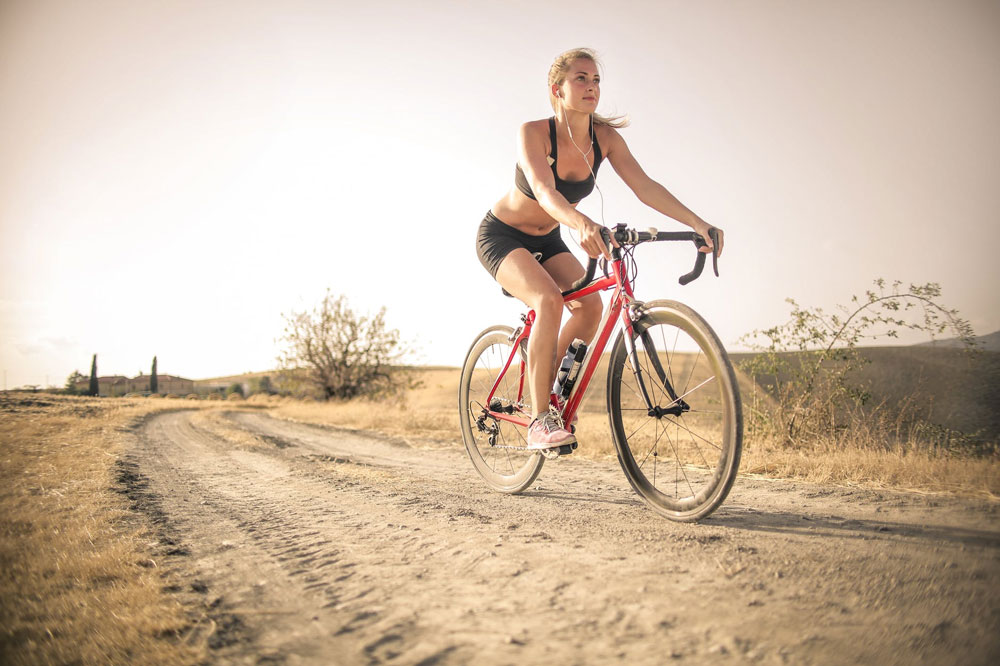
Cycling is one of the best exercises to improve your gut health.It’s a fantastic cardio exercise that most youngsters will love to engage in. According to a research study (16) done for initially sedentary and overweight women, it has been reported that cycling is associated with an improved profile of gut microflora in addition to the heightening of overall wellbeing.
Cycling workouts have increased the amount of gut-friendly bacteria and at the same time reducing the unwanted bacteria. This will cut-off belly fat, strengthen bowel movements, helps in preventing gas and bloating, improve the gut microbiome and consequently, will result in improved digestion.
In addition, is biking good for constipation? Yes. Cycling will keep off constipation. Have you ever felt bloated after a bike ride? Note: There is a chance of experiencing a feeling of indigestion, abdominal cramps, bloating, flatulence and nausea after a bike ride.
06. Best Breathing exercises to improve gut health & digestion
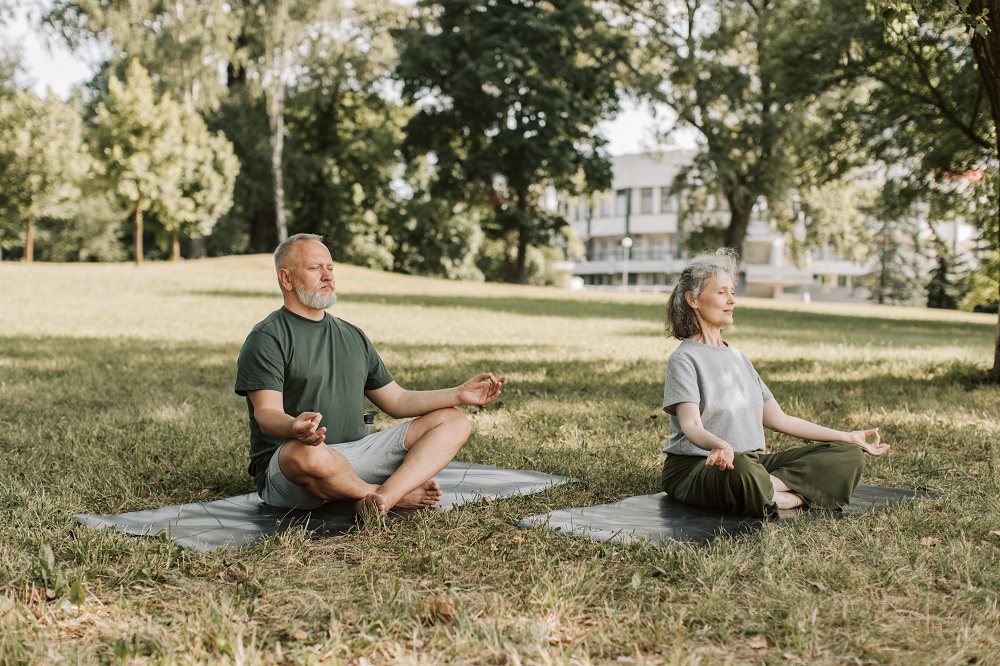
Diaphragmatic breathing, deep breathing, or breathing with the stomach is another type of simple exercise you’ll find helpful to stay relaxed and conscious. This will relax your digestive tract and will maintain more regular bowel movements. It is well practiced for gastrointestinal patients (GI) also (17).
Can breathing cause bloat? Note: At sometimes, you may likely feel abdominal bloating, intestinal pain and excessive burping and belching due to excess mouth breathing. Follow the steps below.
At first, find a comfy place free of disturbances.
- Sit down or lay down there.
- Place one hand on your chest and the other on your belly.
- Move the bottom hand. You can move the other hand only while the bottom hand moving or holding still.
- Inhale through the nose for 4 seconds emphasizing abs.
- Hold your breath for 2 seconds.
- Exhale slowly and steadily through the mouth for about 6 seconds. The mouth should be relaxed.
- Repeat the same for 5-15 minutes.
You can try breathing exercises for gut health especially on occasions where you encounter Irritable Bowel Syndrome (IBS) also. When engaging keep in mind to concentrate on your breaths and keep them slow and rhythmic (18). There is no exact right way. You can engage in a way comfortable to you. In addition, exercising right nostril breathing helps in increasing the efficiency of the digestive system (19). You should practice this only with a Yoga expert.
07. Tai-Chi
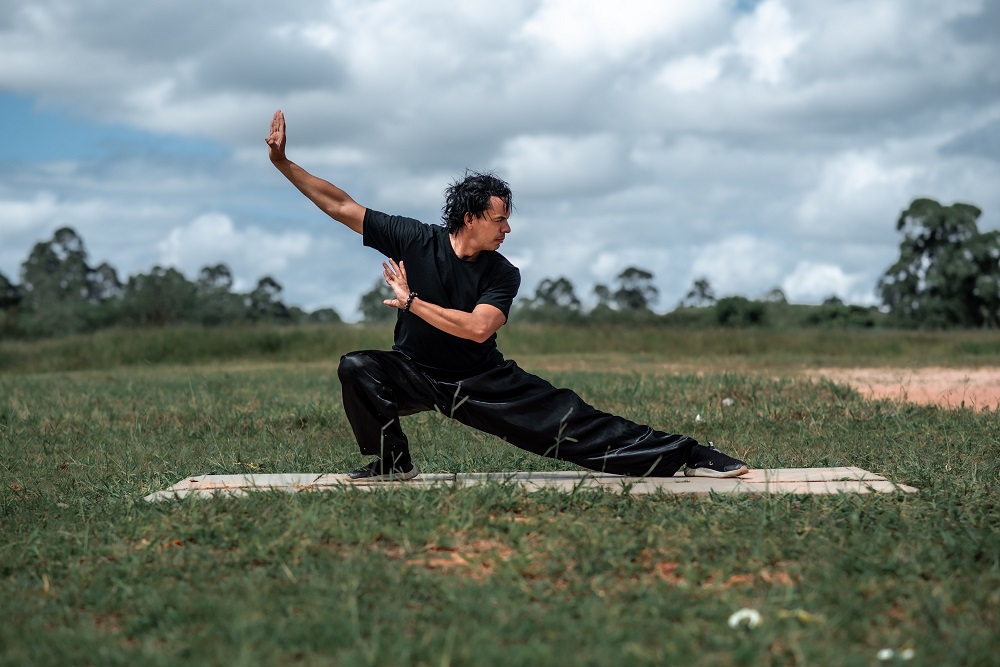
A mind-body practice that is just similar to Yoga. It is a moderate-intensity exercise (20). You’ll find it as no pain, big gain. You can easily start with Tai-Chi at the least cost as no fancy equipment is needed. And you will reap optimum if you get started before being subjected to any kind of chronic illness. Tai-Chi will benefit you by improving Abs strength and optimizing gut functions by reducing inflammations (20) and stress (21). A Tai-Chi may include the following (22).
- Warm-up first
- Short forms – Including a dozen or fewer movements
- Long forms – Including a hundreds of movements
Note: Begin with short forms of slower and smallest movements especially if you are somewhat old or not in a good condition.
- Qigong – Practice a few minutes of gentle breathing combined with movements while sitting, standing/lying down.
08. Strength training
This will help you by improving intestinal motility, properly eliminating waste by regular movements in your guts. If you are a victim of digestive stress due to constipation etc. a low-impact exercise together with strength training will help you the most (21). In addition, it will help you with a cardio boost also.
09. Pelvic floor activation
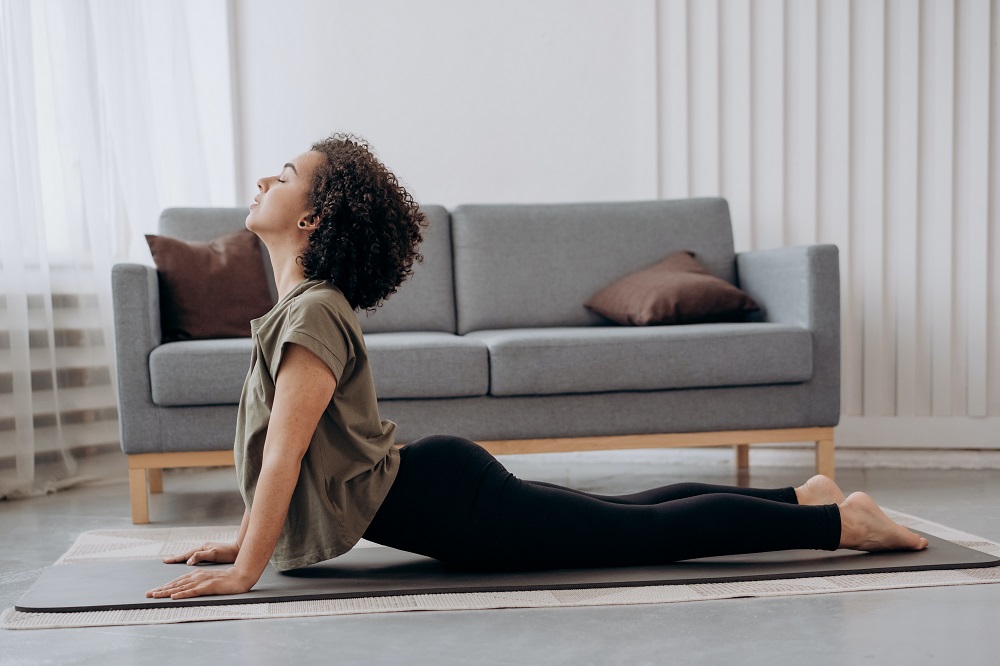
This is also one of the best exercises to improve your gut health. It will help greatly for both men and women who are having bowel irregularities and also disorders associated with urination. With time it will tighten your muscles in the pelvic floor (23). In here, you may feel like pretending to urinate and then holding it. You’ll be beneficial for bladder control and bowel movements. Follow the tips 3-5 times a day to do it correctly (24).
- Start by unloading your bladder
- Tighten the right muscles and hold them for 10 counts
- Relax the muscles for 10 counts
- Do around 10 repetitions
- Breath slowly from nose and mouth as you tighten and relax
10. Aerobic exercises
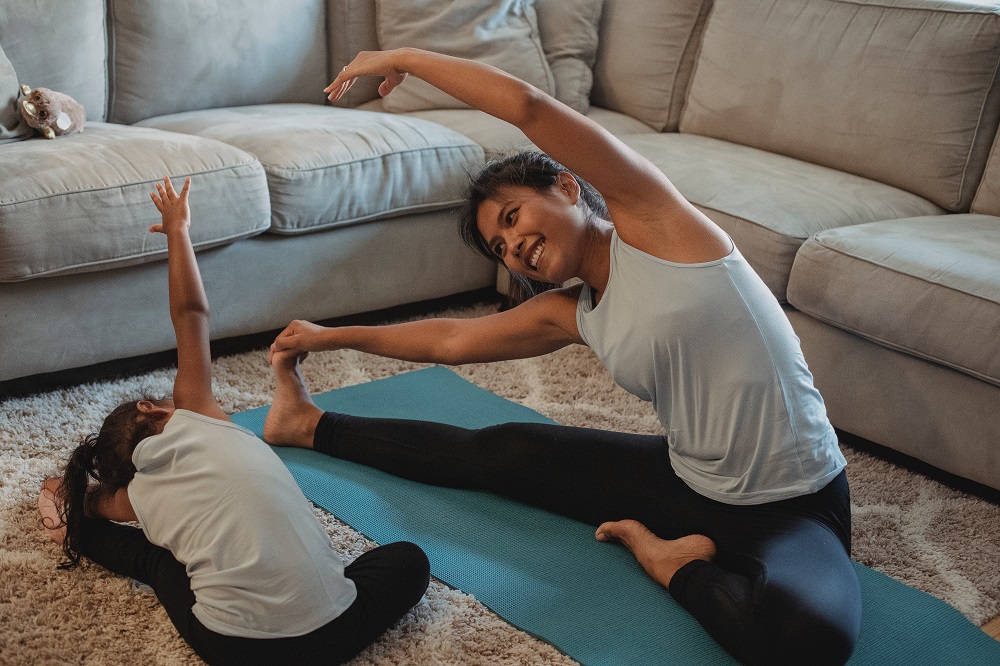
Recent studies have suggested that aerobic exercises are impacting human gut health by heightening microbiome diversity (25). Aerobic exercises provide cardiovascular conditioning by controlling the amount of oxygen, muscles can make use of (26). Be careful in aerobics. For that start by warming up safely, cooling down and engaging in stretching exercises. You can try out lower impact aerobics and as well as higher impact aerobic depending on your age limit and physical status. Note: Take care to avoid any vigorous aerobics such as
- kickboxing,
- cycling
- jogging,
- running,
- dancing, etc.
as they may trigger upset tummies with discomforts and stitches (27).
Best digestion exercises to improve gut health -after eating
It is a common question that arises how long should you wait for exercising after eating. In general, it is unnecessary to wait until your food is fully digested. Normally, it takes around 2-4 hours to move food from the stomach to the small intestine where absorption commences. It is good to give some time to settle food in your stomach. About 1-2 hours is sufficient after a moderate meal and 30 minutes is enough just after a snacking.
Then, what happens if you exercise after eating? Note: There are potential side effects too. When you do exercises too close to eating you may have potential side effects due to bloating, nausea, cramping and vomiting (28). The severity is linked to the intensity of exercise you are engaging in.
However, following gentle movements will help you to improve your gut health and digestion. You can try them after a snack or a small meal (27). Note: Take care enough to do them in a small and controlled manner. Wait for about 30 minutes after a heavy meal and then start.
11. Exercise 1
You can start following on with stretching exercises to help digestion after eating. By doing them, the peristalsis process will be facilitated, abs will get massaged and you’ll find reduced bloating.
- Down on a towel or an exercise mat
- Place your hands and knees directly under the shoulders and hips respectively. Keep your spine straight.
- Extend your right arm as lining to your shoulders and the left leg lining to your hips. Focus well to maintain a straight line.
- Hold the position for a second.
- Slowly come back to the starting position.
- Drop your head and tail bone. Make your back to be bend as if you are hung freely by a belt.
- Hold this for a second.
- Repeat about 10 times for the same leg and arm.
- Rest and repeat for the other side as well.
12. Exercise 2
- Turn on the other side and lie on your back on the mat.
- Take both of your knees bending towards the chest and hug them.
- Hold for a few seconds.
- While hugging a leg, extend the other leg straight.
- Next, draw in the straighten leg back and do the same for the other leg.
- Repeat 10 times.
Note: Keep your head and shoulders on the floor throughout.
13. Exercise 3
Finally,
- Lie down slowly.
- Move your arms slowly by side to up, passing the head. Keep your arms in contact with the floor throughout.
- Stretch yourself completely as long as you can.
- Hold for 10-20 seconds. This will help you to release any pressure in the guts.

